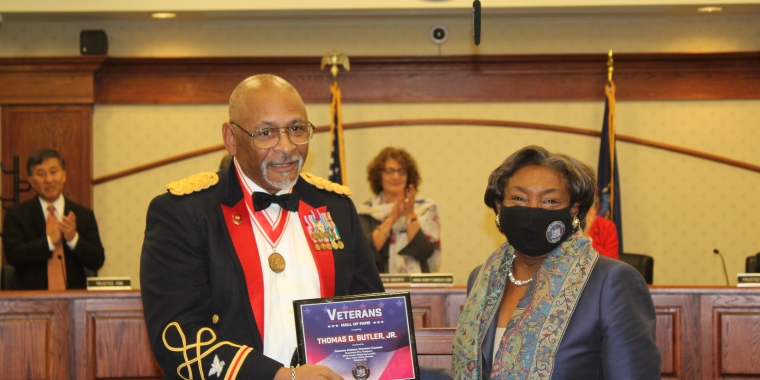
Senate Majority Announces Statewide Hearings And Roundtable Discussions On Opioids, Addiction & Overdose Prevention
- Joint Senate Task Force on Opioids
- Addiction & Overdose Prevention
(Albany, New York) Senate Majority Leader Andrea Stewart-Cousins today announced that the Joint Senate Task Force on Opioids, Addiction & Overdose Prevention will be holding seven hearings and roundtable discussions across the state. The Task Force will carry out a holistic review of New York’s overdose crisis and the State’s approach to drug use, with a focus on saving lives and improving individual and community health. The Task Force will hold discussions with stakeholders and carry out a review of best practices to identify gaps in the current system and to develop short- and long-term legislative and budgetary solutions. The first hearing will take place on August 9 in the Bronx, with subsequent hearings and roundtables taking place in Central New York, Buffalo, Staten Island, the Hudson Valley, Long Island, and Albany.
“Opioid misuse and addiction is an ongoing crisis that is destroying families and communities throughout New York,” Senate Majority Leader Andrea Stewart-Cousins said. “This epidemic impacts all communities, which is why the Senate Majority will hold hearings and roundtable discussions throughout the state and we encourage New Yorkers to attend and participate. I commend Senators Harckham, Carlucci and Rivera, for co-chairing the Joint Senate Task Force on Opioids, Addiction & Overdose and holding these joint hearings and discussions to combat the opioid crisis.”
Senator Peter Harckham, Chair of the Alcohol and Substance Abuse Committee, said, “Opioid and other substance use disorders continue to claim way too many lives in NYS, in all age groups. We’re hitting the road over the next few months to speak with stakeholders all over our state, to better understand how to save lives through improved state programs, better allocation of funds and new legislation.”
Senator David Carlucci, Chair of the Mental Health Committee, said, “Every day the opioid epidemic is taking lives. It’s ravaging our communities, while not discriminating. New York has taken action to hold drug makers accountable and increase access to treatment and recovery services. With this Task Force, we will go further and straight to those on the frontlines of addiction to discuss treatment and how to prevent relapse. It’s critical we determine where our current efforts have gaps so we can save lives.”
Senator Gustavo Rivera, Chair of the Health Committee, said, “Every day the opioid crisis is claiming the lives of New Yorkers all across the State. As legislators, we must employ every tool at our disposal to fight this epidemic and save lives. I look forward to co-chairing the Joint Senate Task Force with Senators Harckham and Carlucci, where we will hear from a broad range of voices to help us come up with bold solutions to ensure we win the battle against this devastating public health crisis.”
The Senate Democrats have long stood with communities in the fight against opioid misuse. In 2013, the then Senate Democratic Minority held independent hearings on the growing use of heroin and opioids and in 2014, advanced legislation to address this crisis. Progress was made this past year when the new Senate Democratic Majority passed legislation to fight opioid misuse and addiction by providing additional resources to those fighting and recovering from this disease. Senator David Carlucci, Senator Gustavo Rivera, and Peter Harckham, chairs of the Senate Committees on Health, on Mental Health, and on Alcoholism and Substance Abuse, will continue the Senate Majority’s commitment to supporting New Yorkers battling this disease.
The Bronx hearing will be on Friday, August 9 at 10:00 AM at St. Barnabas Hospital.
If you would like to participate at one of the hearings or roundtables conducted by the Joint Senate Task Force on Opioids, Addiction & Overdose Prevention, please RSVP to nysoverdosetaskforce@nysenate.gov.
###
2019 Opioid Legislation Passed by the Senate Democratic Majority includes:
-
Informational Card For Opioid Antagonists Must Include Information On Good Samaritan Protections: This bill, S.6361, sponsored by Senator David Carlucci, requires informational materials regarding the use of opioid antagonists for first aid or emergency treatment to include information of the application of good Samaritan laws to protect against liability that exist in current law.
-
Expand Access to Medications that Treat Substance Use Disorders: This bill, S.5935, sponsored by Senator Pete Harckham, would allow New Yorkers on Medicaid to access whichever medical assistance treatment medications are deemed best suited to address their unique situation and recovery efforts.
-
Bill of Rights for Individuals in Chemical Dependence Treatment Programs: This bill, S.4599, sponsored by Senator Kevin Parker, creates an explicit list of rights for patients receiving treatment in a chemical dependence program that must be placed in conspicuous places throughout chemical dependency treatment facilities and given to every patient upon intake.
-
Recovery Living Task Force: This bill, S.4496, sponsored by Senator Monica Martinez, creates a “recovery living task force” that would establish best practice guidelines for recovery living residences for persons recovering from a chemical dependency. The task force must issue a report to the governor and legislature containing the results of the study and its recommendations for the above areas within one year of the effective date of the bill.
-
Limits Substitutions of Abuse-Deterrent Pain-Relieving Opioid Drugs: This bill, S.6397, sponsored by Senator David Carlucci, ensures that if a prescriber indicates a patient should receive an abuse-deterrent formulation of an opioid product, an insurer or the state Medicaid plan may not require the use of a non-abuse-deterrent formulation before authorizing the use of an abuse-deterrent formulation. The bill also requires that for each opioid analgesic on a private insurer’s formulary, there must also be coverage for at least one abuse-deterrent formulation.
How a Bill Becomes Law
Learn More-
Senator has new policy idea
-
Idea is drafted into a Bill
-
Bill undergoes committee process
-
Senate and Assembly pass bill
-
Bill is signed by Governor

